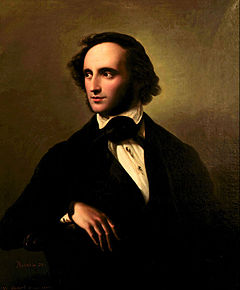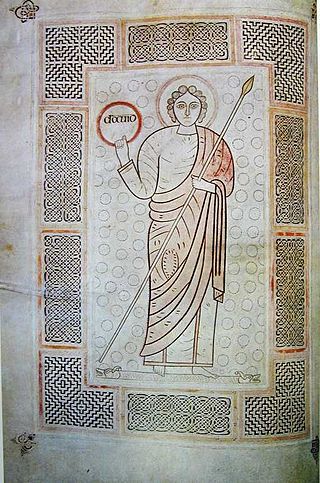
Psalm 100 is the 100th psalm in the Book of Psalms in the Tanakh. In English, it is translated as "Make a joyful noise unto the Lord, all ye lands" in the King James Version (KJV), and as "O be joyful in the Lord, all ye lands" in the Book of Common Prayer (BCP). Its Hebrew name is מִזְמוֹר לְתוֹדָה, 'Mizmor l'Todah' and it is subtitled a "Psalm of gratitude confession". In the slightly different numbering system in the Greek Septuagint version of the Bible, and in the Latin Vulgate, this psalm is Psalm 99. In the Vulgate, it begins Jubilate Deo, or Jubilate, which also became the title of the BCP version.
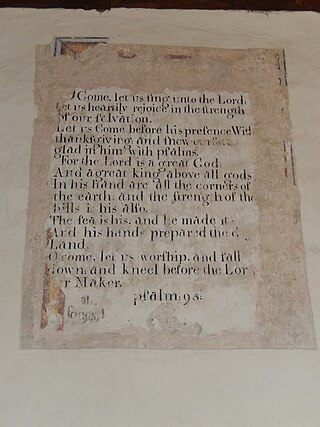
Psalm 95 is the 95th psalm of the Book of Psalms, beginning in English in the King James Version: "O come, let us sing unto the LORD: let us make a joyful noise to the rock of our salvation". The Book of Psalms starts the third section of the Hebrew Bible, and, as such, is a book of the Christian Old Testament. In the slightly different numbering system in the Greek Septuagint version of the Bible, and in the Latin Vulgate, this psalm is Psalm 94. In Latin, it is known as "Venite exultemus" or simply "Venite". The psalm is a hymn psalm, one of the Royal psalms, praising God as the King of His people. Psalm 95 identifies no author, but Hebrews 4:7 attributes it to David. The Vulgate also names David as the author.

Psalm 42, Op. 42 Wie der Hirsch schreit is a cantata by Felix Mendelssohn, setting Psalm 42 in German. It was written and published in 1837 for soloists, mixed choir and orchestra.
Lobet den Herrn, alle Heiden, BWV 230, is a motet by Johann Sebastian Bach.

Psalm 149 is the 149th psalm of the Book of Psalms, a hymn as the book's penultimate piece. The first verse of the psalm calls to praise in singing, in English in the King James Version: "Sing a new song unto the Lord". Similar to Psalm 96 and Psalm 98, Psalm 149 calls to praise God in music and dance, because he has chosen his people and helped them to victory. Psalm 149 is also marked by its martial tone: it calls on the people to be ready to fight.

Psalm 96 is the 96th psalm of the Book of Psalms, a hymn. The first verse of the psalm calls to praise in singing, in English in the King James Version: "O sing a new song unto the Lord". Similar to Psalm 98 and Psalm 149, the psalm calls to praise God in music and dance, because he has chosen his people and helped them to victory. It is one of the royal psalms praising God as the King of His people.
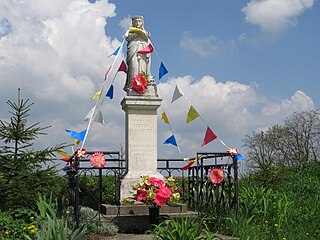
Psalm 115 is the 115th psalm of the Book of Psalms, beginning in English in the King James Version: "Not unto us, O LORD, not unto us, but unto thy name give glory". It is part of the Egyptian Hallel sequence in the fifth division of the Book of Psalms.
"Nun lob, mein Seel, den Herren" is a Lutheran hymn written in German by the theologian and reformer Johann Gramann in 1525. It was published in 1540 and appears in 47 hymnals. A translation by Catherine Winkworth, "My Soul, now Praise thy Maker!", was published in 1863.
Jauchzet dem Herrn alle Welt is a three-movement pasticcio motet for double SATB choir. It includes music by Georg Philipp Telemann and Johann Sebastian Bach. The text of the motet is a German paraphrase of Psalm 100.
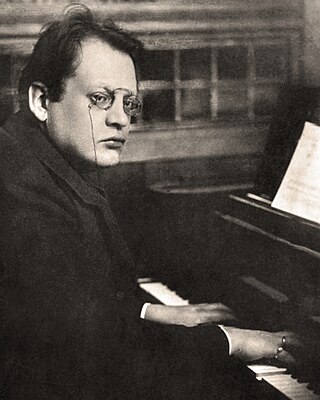
Der 100. Psalm, Op. 106, is a composition in four movements by Max Reger in D major for mixed choir and orchestra, a late Romantic setting of Psalm 100. Reger began composing the work in 1908 for the 350th anniversary of Jena University. The occasion was celebrated that year with the premiere of Part I, conducted by Fritz Stein on 31 July. Reger completed the composition in 1909. It was published that year and premiered simultaneously on 23 February 1910 in Chemnitz, conducted by the composer, and in Breslau, conducted by Georg Dohrn.
Jauchzet dem Herrn, alle Welt may refer to:

Lord, have mercy upon us, WoO. 12, MWV B 27, is the incipit of a motet for choir a cappella in both English and German composed by Felix Mendelssohn in 1833. It is also known in English as Responses to the Commandments, and in German as Zum Abendsegen. It was published in 1842, both in English and German, and by Breitkopf & Härtel in 1875 in the complete edition of the composer's works.
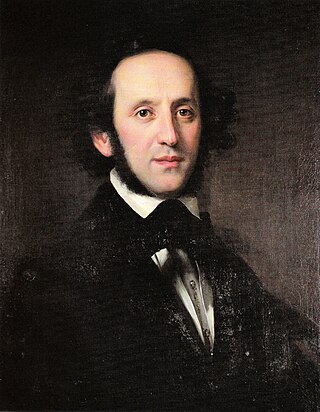
Denn er hat seinen Engeln befohlen, MWV B 53, is the incipit of a motet for an eight-part choir a cappella by Felix Mendelssohn. He wrote it in 1844 for the Berlin Cathedral, setting verses 11 and 12 from Psalm 91. Later, Mendelssohn made the motet with accompaniment part of his oratorio Elijah. It was published in 1844, and by Breitkopf & Härtel in 1875 in the complete edition of the composer's works.

Verleih uns Frieden is a chorale cantata by Felix Mendelssohn, setting a prayer for peace by Martin Luther. Mendelssohn composed the short work in one movement for mixed choir and orchestra in 1831. It is also known as Verleih uns Frieden gnädiglich.

Drei Motetten, Op. 39, is a collection of three sacred motets for women's voices and organ by Felix Mendelssohn. Composed in 1830 for different liturgical occasions and in different scoring, they were published together in 1838.

Wer bis an das Ende beharrt, is a motet for a four-part choir by Felix Mendelssohn. He wrote it as part of his oratorio Elijah, published in 1847.

Die Deutsche Liturgie, MWV B 57, is a collection of musical settings of the ten sung elements in the Protestant liturgy, composed by Felix Mendelssohn for double choir a cappella. He wrote it in 1846 for the Berlin Cathedral, on a request by the emperor, Friedrich Wilhelm IV of Prussia. It was published by Breitkopf & Härtel in 1875 in the complete edition of the composer's works.
Jauchzet dem Herren, alle Welt, SWV 36, is a choral setting of Psalm 100 in German for double choir by Heinrich Schütz. It is one of the Psalmen Davids, published in 1619. The psalm setting has been performed and recorded internationally.
